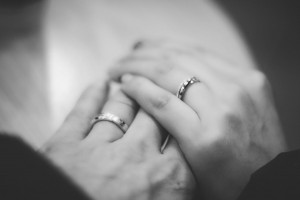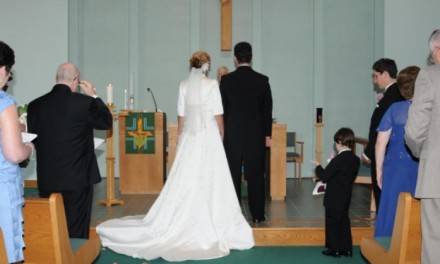 The Greeks have a culture that stretches back for millennia, and many, though not all, of their wedding customs are equally ancient.
The Greeks have a culture that stretches back for millennia, and many, though not all, of their wedding customs are equally ancient.
Two or three days before a Greek wedding, the happy couple stages a celebration called “Krevati” (the Greek word for bed) in their home.
During this joyous ceremony, friends and family come to their home and lay money and small children on their bed to symbolize their hopes for a prosperous and fertile wedding for the new couple.
After this occurs, there is usually a big party with food and music.
Greek weddings are usually held on a Friday, a Saturday, or a Sunday.
In kind with Western tradition, the groom is not allowed to see the bride on the day of the wedding until she arrives for the ceremony.
The groom will come to the church first and waits for his bride to arrive.
They will exchange bouquets of flowers just before the ceremony.
Unlike American weddings, however, the best man is charged with putting the wedding rings on the bride and groom.
Greek brides and groom are also crowned with crowns of flowers intertwined with lengths of ribbon.
Wedding crowns are traditionally made from long-lasting flowers such as orange blossoms, or are made of “twigs of love and vine” and are wrapped in silver and gold paper.
Many Greek brides preserve their wedding crowns in a frame after the ceremony as a treasured memento of a special day.
The two crowns are often tied together with the trailing ribbons, symbolizing the outward ties that bind the new couple.
At the altar, the bride and groom each take three sips of wine to signify the Trinity.
The koumbarous, usually the groom’s godfather, or in more recent times, the best man, is an honored guest at a Greek wedding.
In addition to putting on the wedding rings and wedding crowns, also circles the altar three times.
Other attendants will read from the Scriptures, hold candles, and help the bride and groom to pack their crowns in special boxes.
A Greek bride may also carry a lump of sugar to guarantee a sweet life in the years ahead.
Believe it or not, the custom of the Bachelor Party, which continues today, may have originated on the island of Sparta.
As it is today, the Bachelor Party entertains his friends at a special supper held on the evening before his marriage.
It is not known if the traditional Spartan Bachelor Party included strippers, but it’s a good bet that copious quantities of wine and liquor were consumed.




